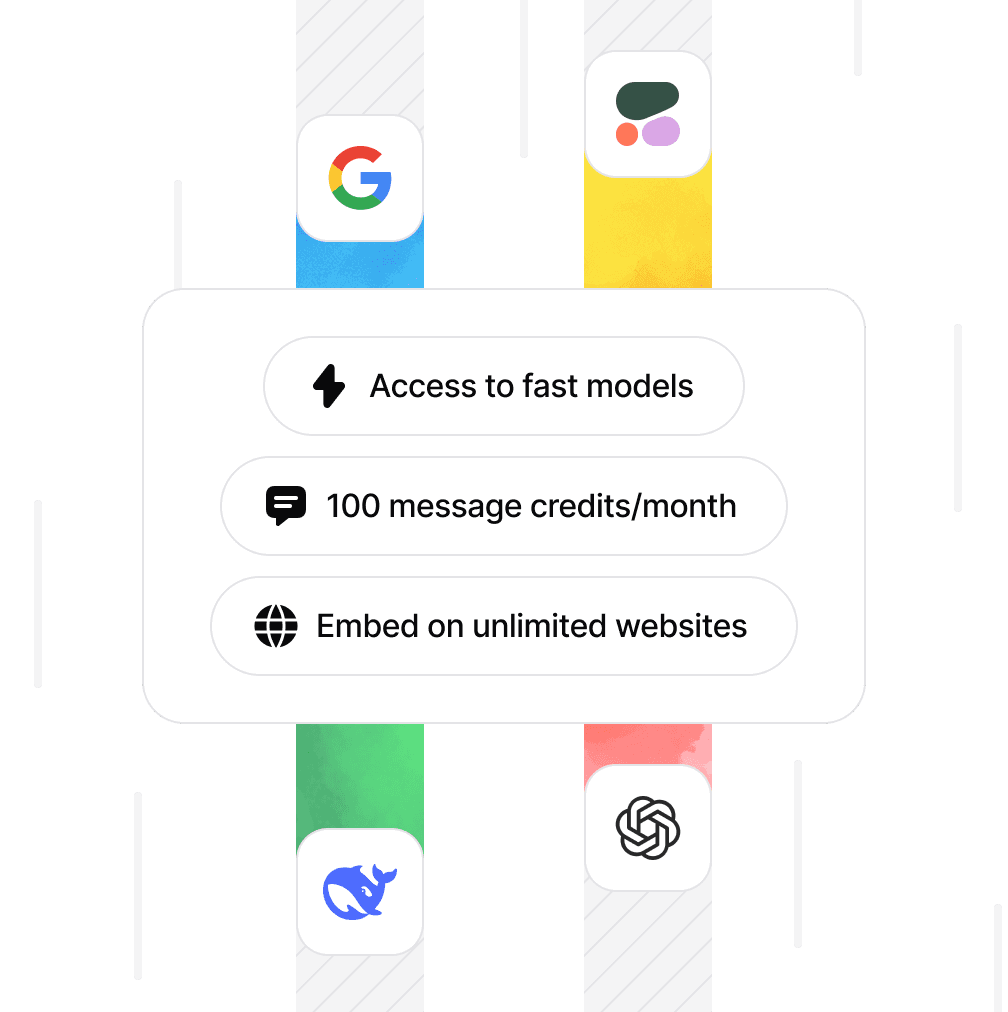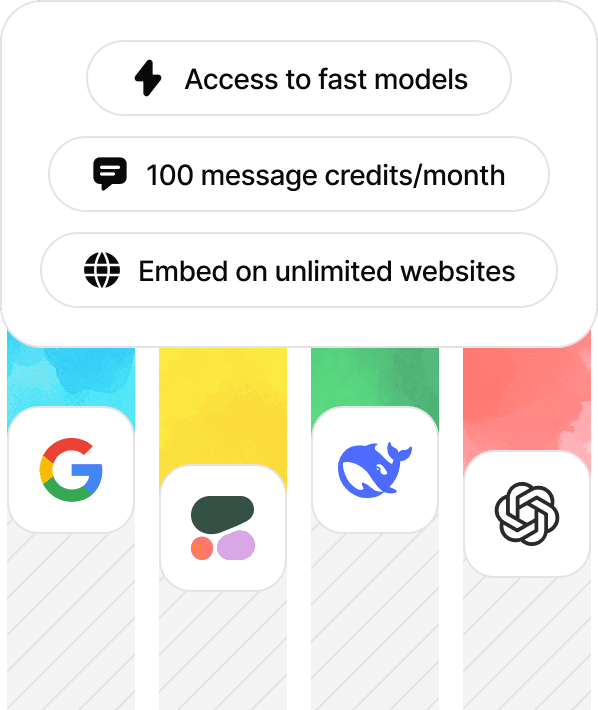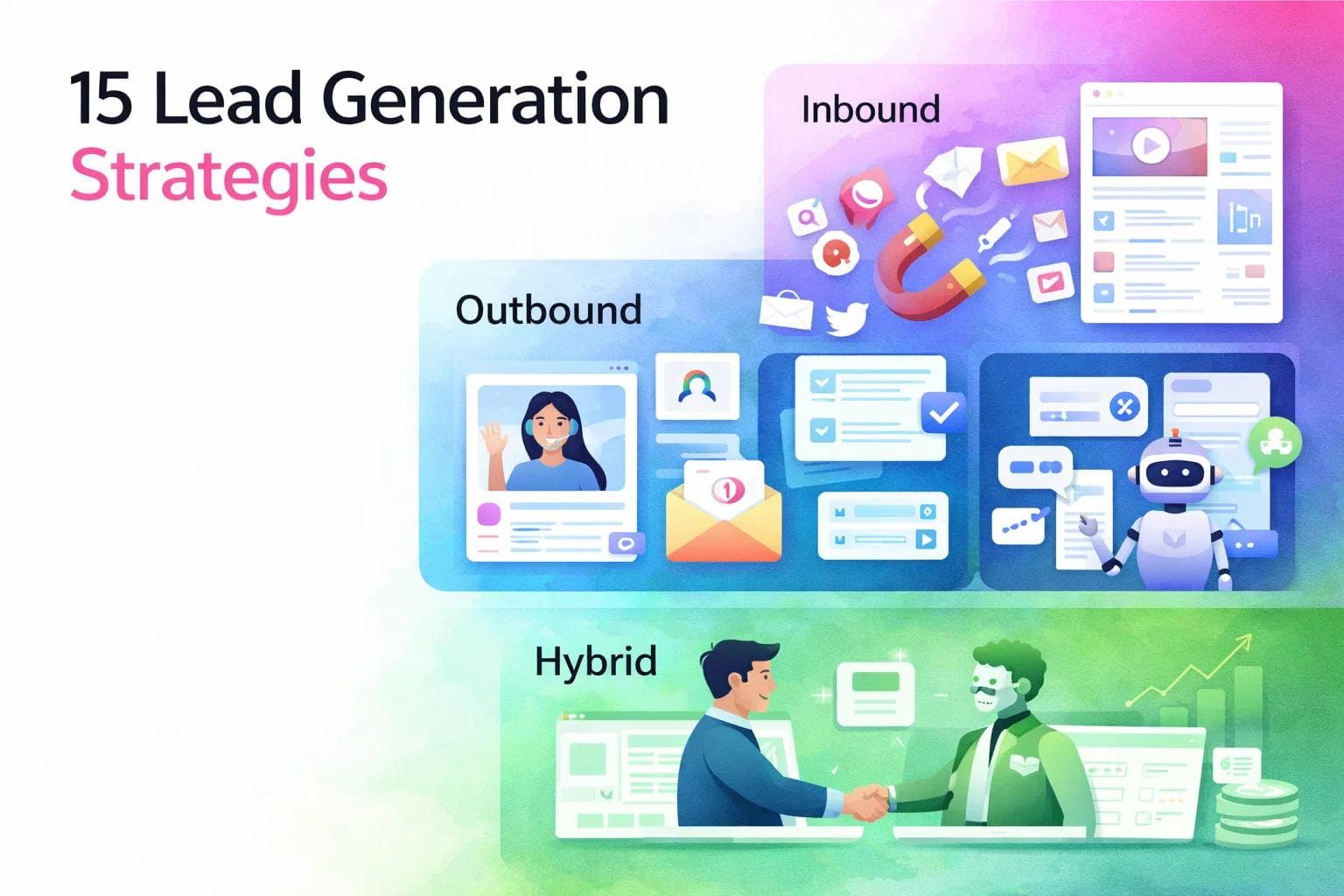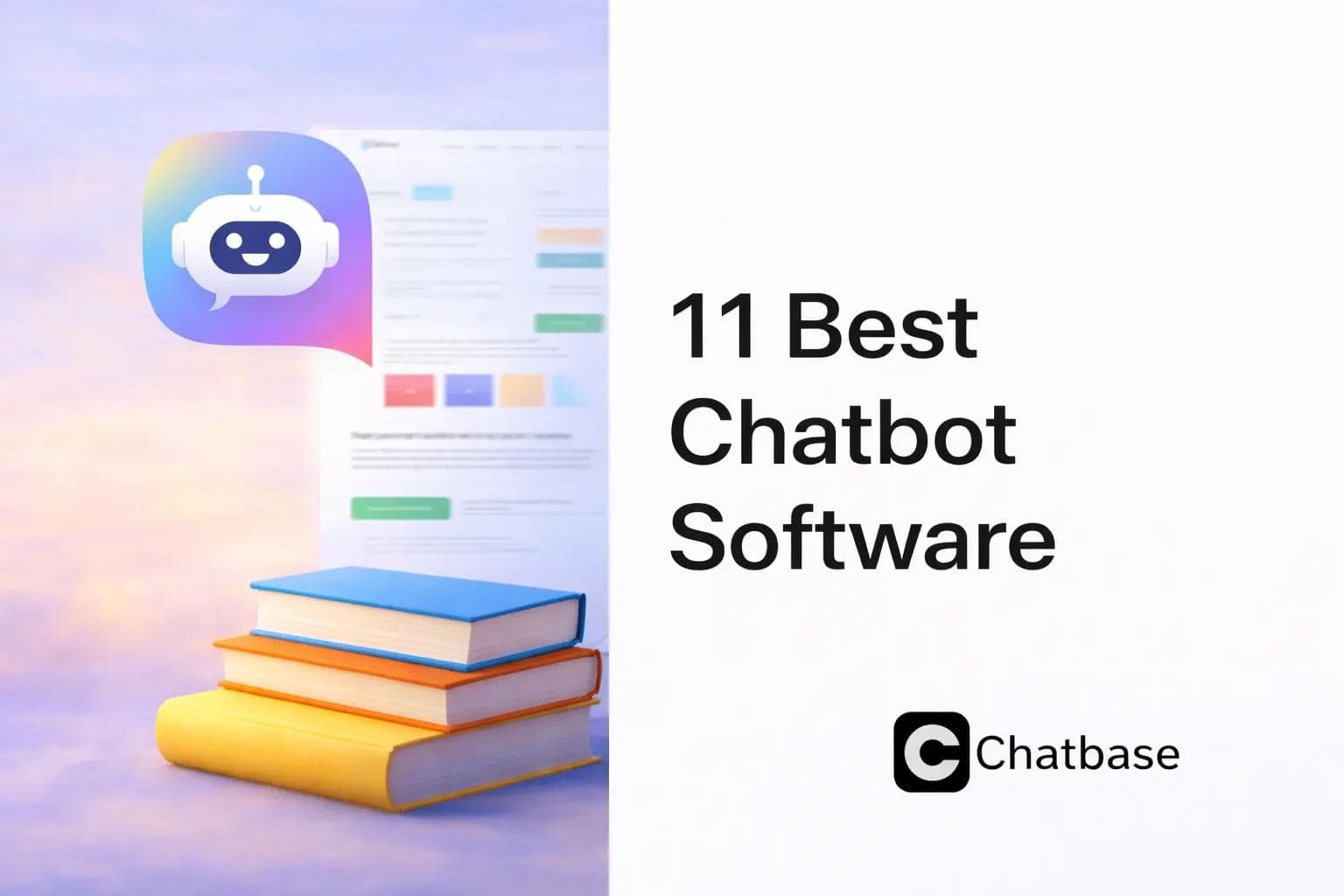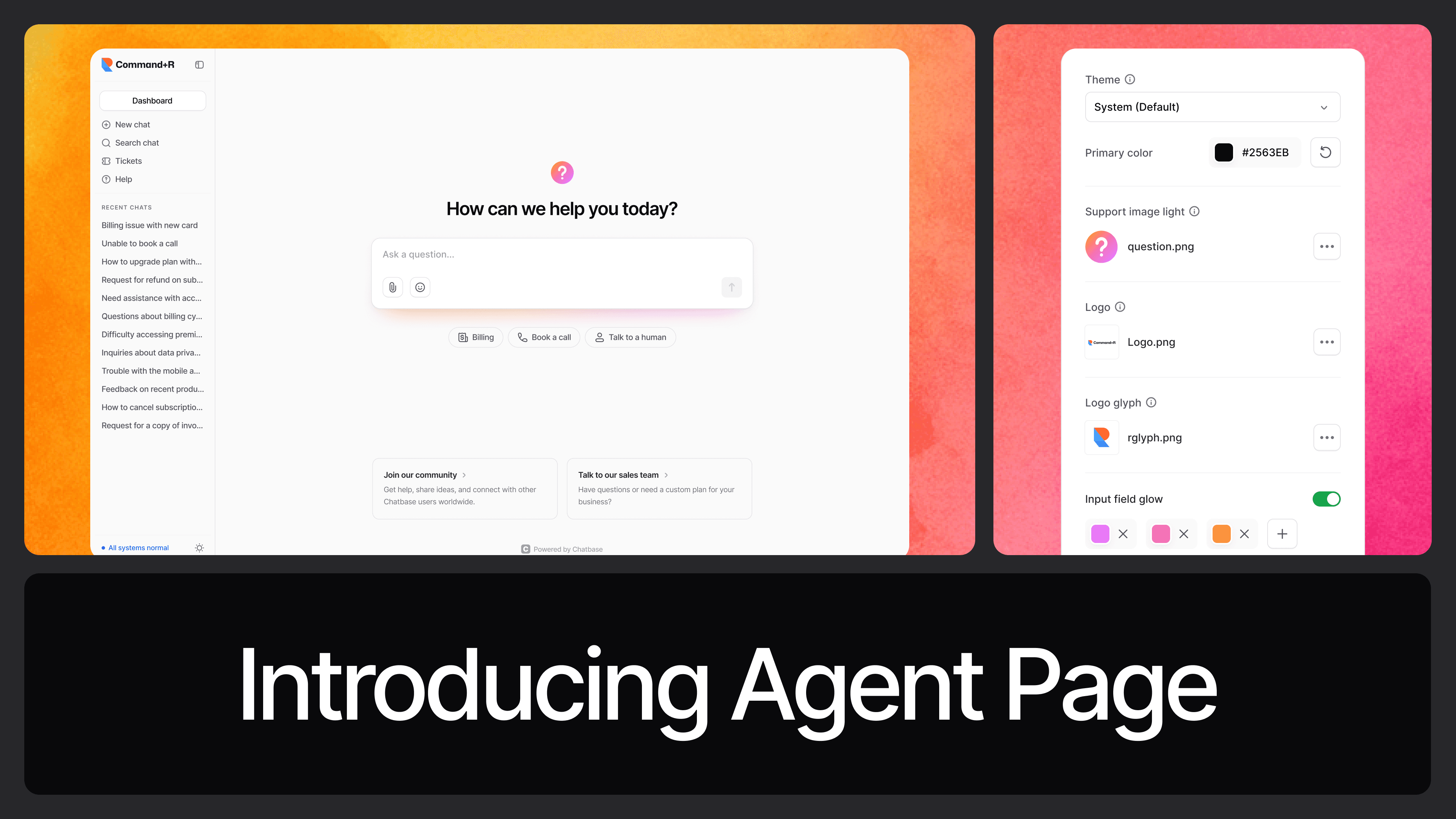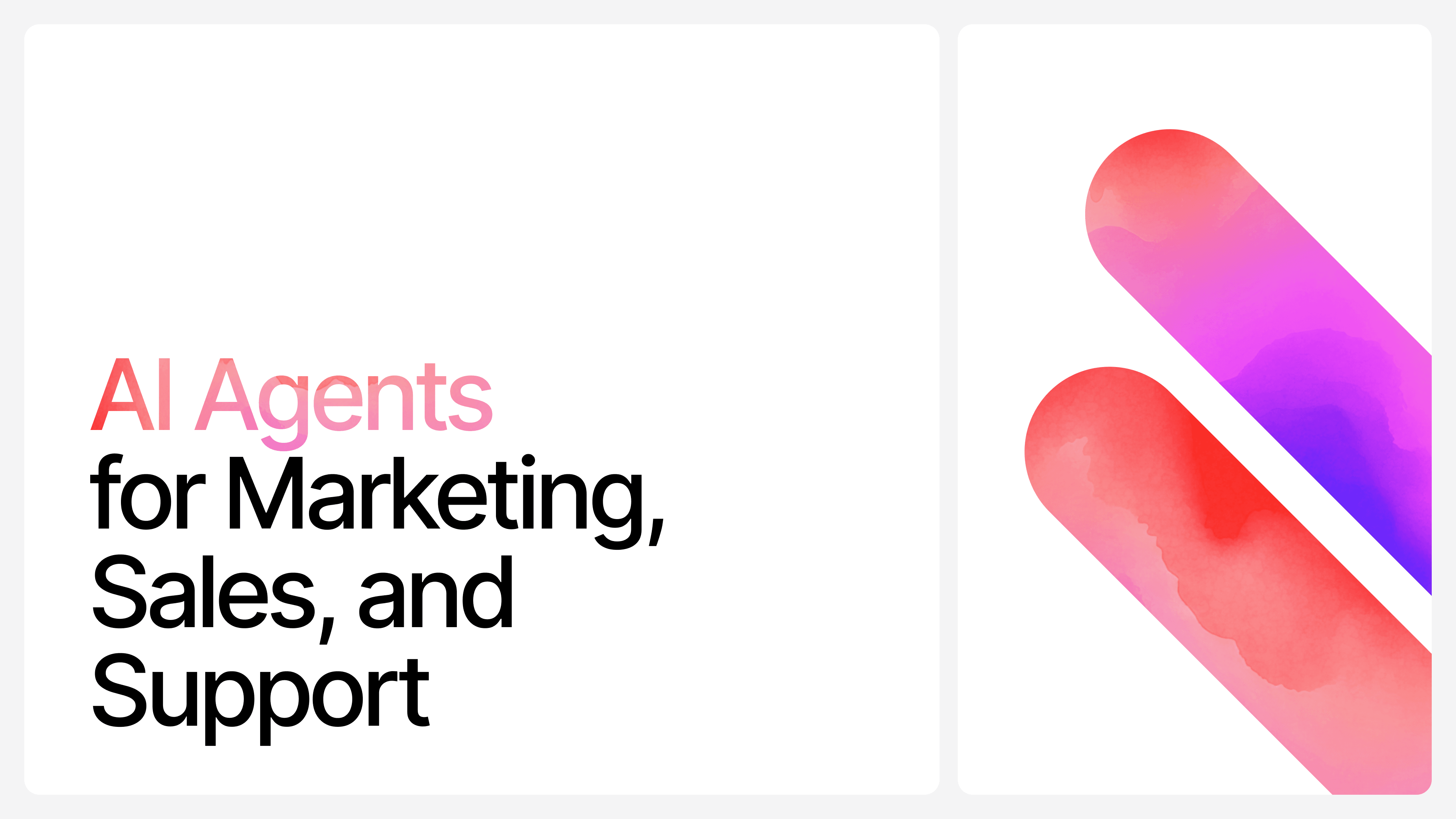Why Traditional Busineses Need AI
Max T
Jul 24, 2025
11 min read
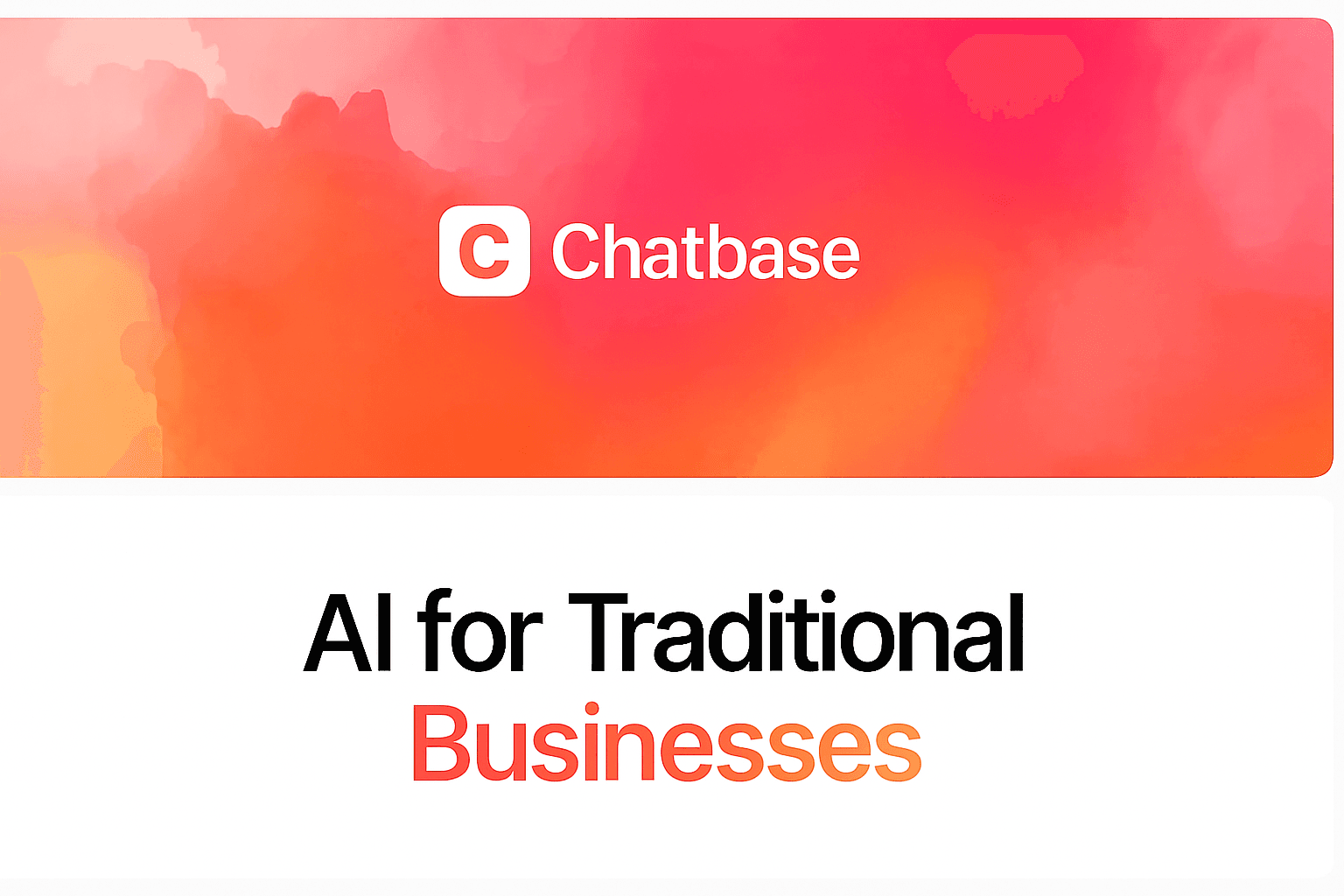
AI has taken over the SaaS world.
From product recommendations to automated workflows and chat support, it's hard to find a modern software company not using AI at some layer of their stack. For tech-native teams, the adoption is natural, they’re already wired to experiment, test, and optimize.
But step outside the startup bubble, and it’s a different story.
Traditional businesses like plumbing services, dental offices, home repair pros, logistics companies, small law firms, real estate agencies, and even reservation-based services aren’t jumping into AI at the same rate. Not because they don’t need it. In fact, when they do adopt AI, they often see outsized gains. But many still sit on the sidelines.
Why?
Sometimes it’s the jargon. Sometimes it’s the feeling that AI is only for the “techies.” Other times, it’s simply because no one has shown them where it fits or how easy the wins can be.
But here’s the truth: AI isn’t just for SaaS. It’s for anyone who runs a business, deals with customers, handles schedules, manages inventory, or answers the same questions every week. And traditional businesses are quietly becoming the biggest beneficiaries, if they can just make the jump.
Why Traditional Businesses Need AI
AI isn't just for tech startups or big corporations. It's quickly becoming a practical tool that helps traditional businesses work smarter, faster, and more efficiently. Here’s why traditional businesses need AI, perhaps just as well as tech-native businesses.
- Faster Customer Response AI tools like chatbots or automated replies can handle FAQs, booking requests, and basic support 24/7. This reduces wait times and keeps customers happy, even when staff are offline.
- Smarter Scheduling and Bookings AI can automate appointment setting, send reminders, and fill empty slots by suggesting optimal times. This means fewer no-shows and better use of your team’s time.
- Better Lead Handling Instead of chasing every contact, AI can qualify leads in real-time based on intent and behavior. That way, businesses only spend time on people who are likely to convert.
- Lower Operating Costs With AI handling repetitive tasks—such as data entry or follow-up emails—teams can focus on high-value work. This reduces the need for excessive staffing or manual admin work.
- Personalized Customer Service AI can remember past orders, preferences, or questions, helping businesses offer tailored experiences. That’s a big win for building loyalty without needing a CRM expert.
- Insights Without Guesswork AI tools can track patterns in customer behavior, reviews, or sales, and flag what’s working or broken. This gives small business owners clarity to make better decisions, faster.
How Traditional Businesses Can Use AI
AI isn't about replacing humans. It's about taking repetitive tasks off your plate so you can focus on what actually grows the business.
1. Automating Customer Conversations (Without Losing the Human Touch)
Think about the number of calls or messages a small business gets daily: “Are you open today?” “Do you do home visits?” “Can I book for Friday?” These aren’t complex questions, but they still eat up time.
AI chatbots or messaging assistants can instantly respond to these repetitive queries across WhatsApp, website chat, Facebook Messenger, or SMS. For example, a plumbing service can use a simple AI bot to:
- Answer common questions
- Collect location info
- Pre-fill job request forms
All before a human even steps in. The result? Faster replies, fewer missed leads, and a smoother customer experience.
2. Handling Bookings and Reducing No-Shows
AI can plug into your booking calendar to manage scheduling automatically. It can:
- Send appointment reminders
- Suggest rescheduling options
- Keep calendars updated in real time
This is already happening in industries like salons, dental clinics, or auto repair shops.
Take a local dental office, for example: instead of playing phone tag, they can let patients book online, auto-send reminder texts, and provide one-click rescheduling links. This doesn’t just save time — it keeps your calendar full and reduces no-shows that cost money.
3. Sorting and Prioritizing Customer Inquiries
Not every incoming message is urgent, but most businesses treat them like they are, which leads to overload. AI can analyze messages in real time, spot urgent issues (like “water leaking in the basement”), and push them to the top of the queue.
For instance, a home repair company using AI in their contact form or messaging inbox can automatically tag inquiries by type, urgency, and location.
This ensures that emergency jobs are handled first, while less urgent tasks can be scheduled more flexibly without requiring a human to screen every request.
4. Following Up Automatically
Many deals are lost not because of bad service, but because no one followed up. AI can send friendly, well-timed follow-ups after a service, a missed booking, or when someone clicks a quote but doesn’t respond.
For example, a moving company can set up AI to check in three days after sending a quote: “Hey, just checking in. Would you like to lock in your move date?”
This kind of consistent follow-up increases conversions without adding any manual work.
.5. Improving Inventory and Resource Planning
For businesses that deal with physical goods, like hardware stores, cleaning services, or catering, AI can help predict what supplies will run low and when.
A catering business, for example, can use AI-powered inventory tools that learn over time. If weekends always bring bigger orders, or if a certain event type requires more of a specific ingredient, the system starts to auto-flag what to stock up on. This helps avoid last-minute shortages and over-ordering.
6. Turning Feedback Into Actionable Insights
Most traditional businesses collect feedback, such as reviews, post-service surveys, or quick comments over the phone, but few have time to analyze all that manually. AI can go through written feedback, pick out recurring themes, and highlight what customers actually care about.
A small gym could use AI to scan member feedback monthly and surface things like “people keep mentioning the front desk experience” or “complaints about weekend class availability.” It’s like having an assistant that reads between the lines and gives you a list of what to fix without spending hours combing through reviews.
7. Training New Staff Faster
Traditional businesses often face high employee turnover, especially in customer-facing roles. AI tools can help shorten the training cycle by offering interactive onboarding, role-playing simulations, or knowledge assistants that answer staff questions in real time.
For instance, a retail shop or small hotel can give new employees access to an AI assistant trained on company SOPs, FAQs, or customer service scripts. So instead of always bugging the manager, the staff can ask, “What do I do if a guest requests early check-in?” and get a reliable answer instantly.
8. Detecting Patterns in Missed Opportunities
Sometimes businesses lose customers and don’t even realize why. Maybe it’s long wait times, unreturned calls, or slow response to emails. AI analytics tools can quietly track these missed opportunities over time.
A local cleaning company, for example, might notice through AI analysis that most leads come in during lunch hours, but their response rate is slow at that time. Just knowing that pattern can help them shift staffing or automate key replies, turning lost leads into actual business.
9. Managing Online Reviews and Reputation
Reviews are make-or-break for local businesses, but keeping up with them is time-consuming. AI can monitor platforms like Google, Yelp, or Facebook for new reviews, alert you to negative ones, and even suggest thoughtful, on-brand responses.
A small landscaping business, for example, could use AI to auto-draft replies to every 5-star review with a personal touch, while flagging any 1- or 2-star reviews for immediate attention. This keeps your reputation solid without needing a social media manager.
10. Translating Services for Broader Customer Reach
In multicultural neighborhoods, language barriers can be a hidden blocker. AI translation tools can bridge that gap, not just with websites but in live chat or over email.
Let’s say a family-owned appliance repair shop starts getting inquiries from Spanish-speaking customers. Instead of missing out, they can use AI translation to communicate clearly, offer quotes, and build trust without hiring a bilingual agent upfront.
What’s Really Stopping Traditional Businesses From Using AI?
Despite the clear benefits, many traditional businesses still hesitate to adopt AI for several practical reasons.
- It Still Feels “Too Techy” For many business owners, AI still sounds like a thing for Silicon Valley, not something they’d use in a plumbing business or dental practice. Most AI tools today are still marketed with technical jargon, which makes them feel out of reach to people who just want practical solutions, not a masterclass in machine learning.
- Fear of Breaking What’s Already Working Traditional businesses often have tight, dependable systems that have worked for years. Introducing something new, especially something that sounds as experimental as AI, can feel like a risk. Even if their current system is slow or manual, at least it’s familiar.
- No Time to Figure It Out Small business owners are already stretched thin. They don’t have the luxury of spending weeks testing out AI tools or learning new platforms. If it doesn’t plug in quickly and show value almost immediately, it’s probably going to be ignored.
- Unclear ROI A lot of AI marketing focuses on futuristic capabilities, but very little speaks directly to the day-to-day returns, like saving two hours a day on emails or closing five more jobs a month from better follow-up. Without a clear financial upside, most business owners just won’t prioritize it.
- Bad First Impressions Some have tried using AI tools in the past, maybe a clunky chatbot or a complicated scheduling app, and gave up after one bad experience. That failed attempt reinforces the idea that “AI doesn’t work” or “it’s not for us,” even when better, easier tools exist now.
- No One’s Really Talking to Them Most AI tools are built with startups, tech companies, or enterprise teams in mind. The design, the pricing, the language none of it speaks to the needs of a solo gym owner, a family-run cleaning business, or a local contractor. That’s why more small businesses are turning to AI development services that specialize in building simple, tailored solutions without jargon or bloat. These services help bridge the gap by translating complex tech into everyday tools that work for real-world businesses. Until someone builds and explains AI with them in mind, the gap will stay wide.
How to Get Started, Even If You’re Not “Techy”
You don’t need to be a developer or data scientist to start using AI in your business. Here’s how to begin with confidence and clarity.
1. Start With One Problem, Not the Whole Business
You don’t need to “AI your entire business.” Just pick one thing that slows you down, like answering customer inquiries, managing bookings, or chasing leads, and look for a tool that handles just that. Starting small keeps it manageable and builds confidence fast.
2. Use Tools That Don’t Require a Developer
Plenty of modern AI tools are built for non-technical users. Think drag-and-drop chatbot builders, auto-responders for WhatsApp or Instagram, or booking tools that run on autopilot. If you can use email and a phone, you can use most of these.
3. Try “Freemium” or Low-Cost Tools First
No need to invest heavily upfront. Many tools (like Chatbase, Tidio, Calendly, or Evenflow) offer free plans or low-cost trials, especially for small businesses. You can start testing AI without spending a dime, and only upgrade when it starts saving you real time or bringing in revenue.
4. Look for Use Cases That Already Work in Your Industry
If you run a dental clinic, look for what other dental clinics are doing with AI. If you run a logistics business, find examples from logistics. You don’t need to invent the wheel—you just need to adapt what’s already working.
5. Don’t Be Afraid to Ask for Help
Even AI tools with easy interfaces can feel overwhelming at first. But most offer live support or onboarding. There are also consultants and freelancers who specialize in helping traditional businesses get started with automation. It’s more affordable than you think.
Add AI to Your Business with Chatbase
If you're running a business that deals with customers daily, whether it's scheduling appointments, answering service questions, or collecting leads, Chatbase can help you handle all of that without adding more to your plate.
Chatbase lets you build a custom AI chatbot that lives on your website, WhatsApp, or Facebook, and it doesn't require any coding or technical skills.
Just connect your FAQs, paste in your services or product list, and your AI assistant is ready to work. It can answer customer questions 24/7, collect key details, and even escalate the conversation when it needs a human.
Want it to handle bookings? You can set that up. Want it to be friendly, professional, or a little playful? You decide how it talks.
No long setup. No confusing dashboards. Just an AI assistant built for your business, ready to go live in minutes.
→ Start for free with Chatbase and see how fast AI can take work off your plate — and keep your customers happier than ever.
Share this article:
